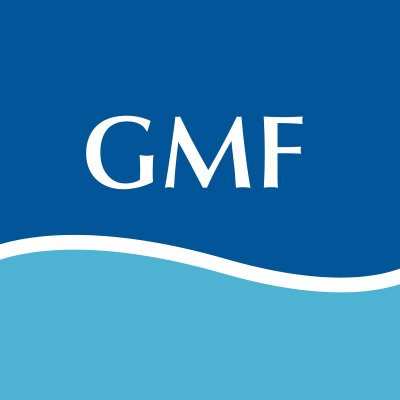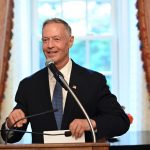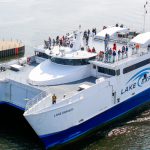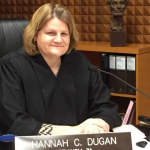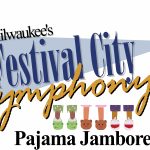More than $95 million in Greater Milwaukee Foundation grants invested in community
The substantial investment in community development includes $52 million in charitable funds supporting the development of the downtown arena project, as directed by Sen. Herb Kohl.
Philanthropic investments in the community soared in 2017 as the Greater Milwaukee Foundation, in conjunction with its many donors, released approximately $95.5 million in grants supporting a wide array of nonprofits and programs throughout the year, based on preliminary data.
The Foundation makes grants directed by its Board in support of strategies that contribute to a higher quality of life for all people across greater Milwaukee. Grants also are issued on behalf of donor advised funds and other vehicles for charitable giving established at the Foundation.
In total, grants support a vast spectrum of causes and community priorities. When grouped into the broad categories recognized by community foundations nationally, Foundation grantmaking had the following composition in 2017:
Community development: $56.78 million
Education: $10.33 million
Human services: $7.61 million
Arts & culture: $6.19 million
Health: $4.74 million
Environment: $4.12 million
Child/Youth/Family: $3.49 million
Employment & training: $868,000
Other: $1.36 million
The substantial investment in community development includes $52 million in charitable funds supporting the development of the downtown arena project, as directed by Sen. Herb Kohl whose 2014 gift of $100 million for that purpose is stewarded by the Foundation.
The outpouring of resources coincided with one of our community’s most generous years on record, as donors giving to and through the Foundation contributed more than $46 million.
“Philanthropy can help propel the development of solutions to a community’s most pressing needs,” said Ellen Gilligan, president and CEO of the Greater Milwaukee Foundation. “The Foundation’s donors continue to expand their giving, leading to greater opportunities for progress and partnerships, and a higher quality of life for people throughout our region.”
Discretionary grant examples from 2017:
- Three institutions were awarded a total of $675,000 supporting medical research projects investigating health issues and interventions focused primarily on addressing health disparities in communities of color. A grant to Children’s Hospital of Wisconsin Foundation will enable research into causes of pain in patients with sickle cell disease, which predominantly affects African Americans and others of African descent. Marquette University will seek to develop new therapies for heart failure in aging and African American populations that eliminate the harmful accumulation of transthyretin amyloid proteins in the heart. The Medical College of Wisconsin will study how colorectal cancer screening rates among African Americans are affected by perceived risk, shared decision-making, personal preferences and financial barriers. Each institution will receive $225,000 over three years for their project.
- 18 organizations that provide services to meet the basic food and shelter needs of individuals and families across the region were awarded more than $368,000 for capital improvement projects. Grants ranging from approximately $5,000 to $50,000 are being used to upgrade facilities and purchase new equipment to improve or expand the agencies’ services. Recipients are: Central City Churches Outreach Ministry, Congregation of St. John’s Cathedral, Feeding America Eastern Wisconsin, Food Pantry of Waukesha County, Friedens Community Ministries, Friends, Guest House of Milwaukee, Hebron House of Hospitality, Hope House of Milwaukee, Interchange, Milwaukee Rescue Mission, Pathfinders Milwaukee, Solomon Community Temple United Methodist Church, St. Vincent De Paul Society of Milwaukee, The Women’s Center, Triangle of Hope, United Methodist Children’s Services of Wisconsin, and United Migrant Opportunity Services.
- Boys & Girls Clubs of Greater Milwaukee was awarded $300,000 over three years in administrative support for Sponsor-a-Scholar, which provides individualized attention to help students succeed in preparing for, enrolling in and graduating from college. The program integrates academic support, mentoring, family engagement, scholarship assistance, college tours and internship opportunities.
- LISC Milwaukee was awarded $300,000 over three years to help the organization increase its capacity to work across the city of Milwaukee on sustained community revitalization through strategies that support affordable housing, public safety, economic development, family financial security and other characteristics of strong neighborhoods.
- YWCA of Southeast Wisconsin was awarded $100,000 over two years to hire a full-time trainer in an effort to expand the agency’s capacity to address racial justice issues, including the creation of additional racial justice education opportunities.
- Islands of Brilliance was awarded $100,000 over two years to support the hiring of a program coordinator, allowing the organization to expand course offerings for young adults on the autism spectrum. Workshops are focused on design and creative services, with a goal of increasing students’ employment opportunities and long-term independence.
A listing of 2017 board-directed grants by quarter can be found on the Foundation’s website.
NOTE: This press release was submitted to Urban Milwaukee and was not written by an Urban Milwaukee writer. While it is believed to be reliable, Urban Milwaukee does not guarantee its accuracy or completeness.
Mentioned in This Press Release
Recent Press Releases by Greater Milwaukee Foundation
Otto Bremer Trust again selects Greater Milwaukee Foundation as philanthropic partner for Community Responsive Fund
Mar 5th, 2025 by Greater Milwaukee FoundationFoundation to distribute $3 million in grants to local nonprofits; application opens March 17
Small grants program celebrates 10 years of big impact
Dec 2nd, 2024 by Greater Milwaukee FoundationLocal foundations collaborate to support resident-led projects
Cream City Foundation Joins Greater Milwaukee Foundation Family
Jul 23rd, 2024 by Greater Milwaukee FoundationFunder, advocate for LGBTQ+ priorities focused on impact, sustainable growth


